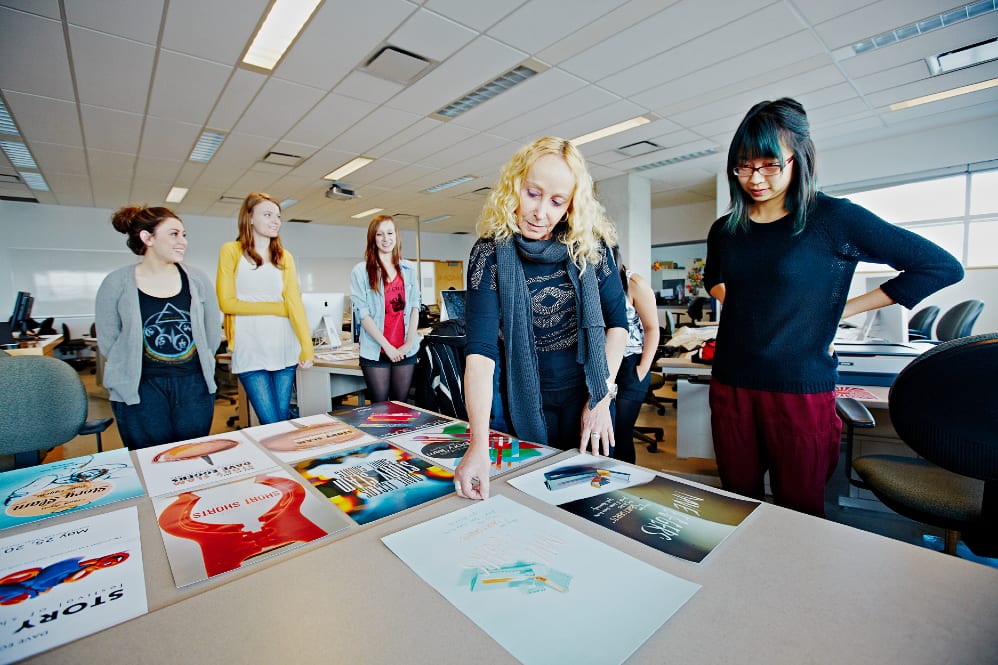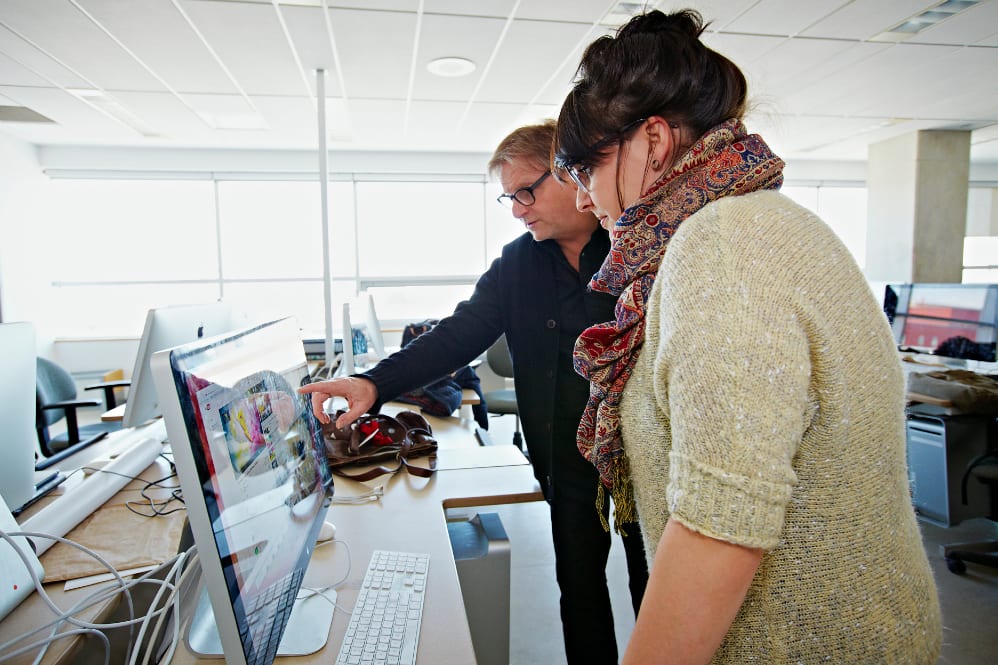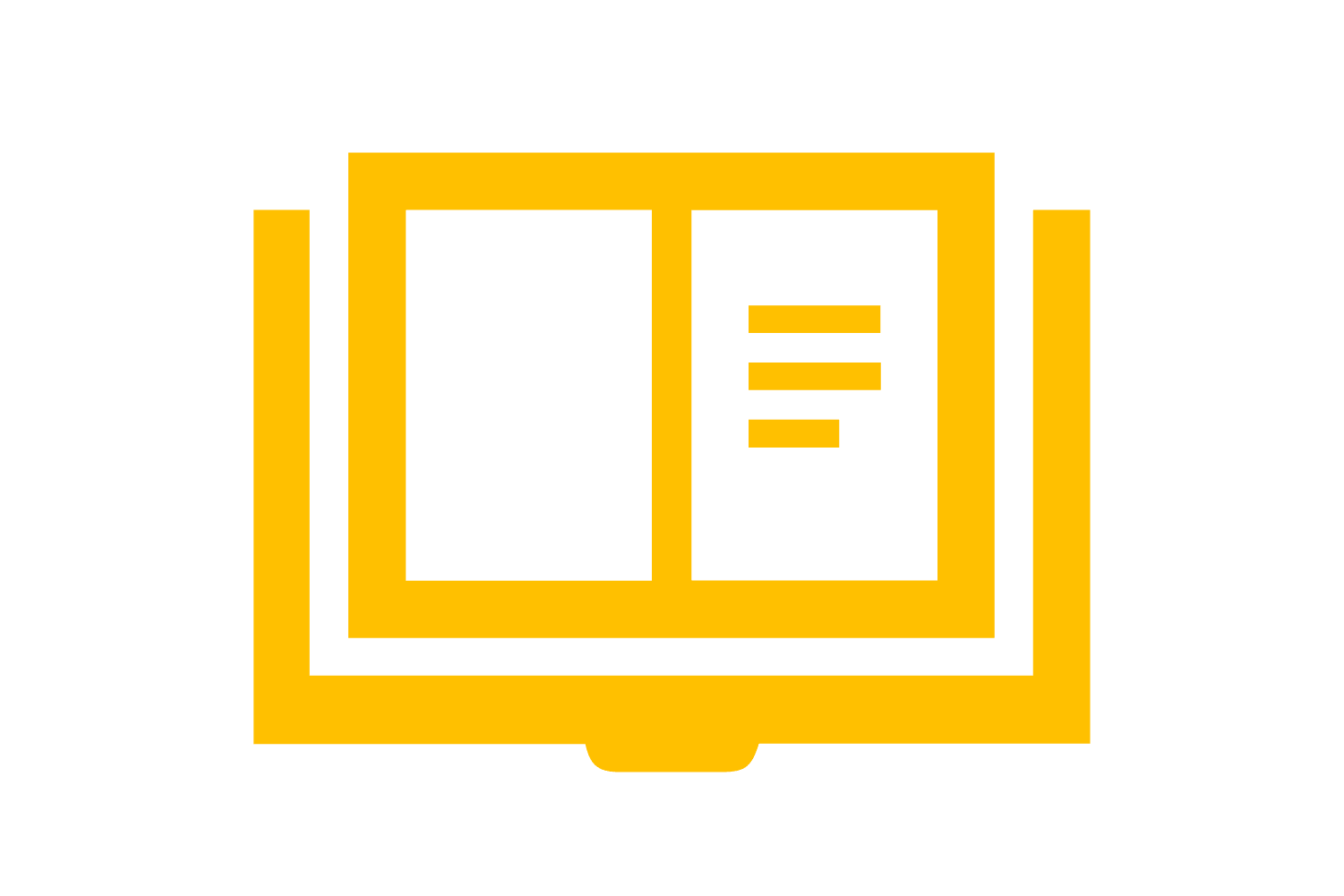Click on each topic title to learn about a variety of resources – ranging from instructional videos, presentations, and toolkits, to published research reports, and media sources.
About the Globally Networked Learning Approach
About GNL at York University
GNL at York University
Read about GNL at York University
The GNL Project at York University was conceptualized in 2013 by Robin Roth, Professor in the Department of Geography(LAPS). Since 2015 the Project with its recent initiatives engaging students and faculty members in the creation of Open Educational Resources for transnational learning experiences is led by Dominique Scheffel-Dunand, Professor in department of French Studies (LAPS). The project has been funded by the Academic Innovation Fund (AIF) at York University. Currently, “the GNL project at York is an autonomous zone bringing researchers, instructors and students together to imagine and experiment with the idea of ‘global thinking’ as a critical skill to acquire for globally networked working environments.
Check out our Faculty Toolkit on how to plan and develop a GNL course.
Current GNL Courses
As of Fall 2020, there are 8 GNL Projects from the Faculty of Liberal Arts and Professional Studies, the Faculty of Health, and Glendon.
GNL Workshops and Training Sessions
Present and past events about GNL held at York University. You can register for events here as well as review the presentation slides and recordings from past events.
COVID-19 pandemic providing a window of opportunity for higher education
The COVID-19 pandemic has been causing unprecedented challenges to higher education by disrupting traditional face-to-face teaching. The COVID-19 pandemic has revealed that transnational inter-university teaching-learning is feasible, provides a beneficial pedagogic option and points promising ways to the future
GNL at York in the Media
GNL at York in the Media
Education News Canada: Globally Networked Learning shines during pandemic'
Published by York University | November 5, 2020
Globally networked learning refers to an approach to teaching and learning that enables students and faculty based in different locations worldwide to participate in and collaborate on knowledge-making processes. They engage in joint lectures and class discussions, assignments or research projects through innovative pedagogies. The partnerships are supported by online communication and information technologies. GNL provides hands-on opportunities for students to learn how to collaborate with individuals from a different culture. Currently, with classes being delivered remotely due to public health and travel restrictions, GNL projects also let students learn how to collaborate via online platforms, similar to the way a team of colleagues works in an international company. With York University courses all being delivered remotely during the pandemic and exchange programs on hold, it's a perfect time for faculty members to consider building a globally networked learning component into their syllabuses.
Hemispheric University Consortium News: Shaping Global Citizens Online: The New Normal in Tec de Monterrey
Published by HUC News | September 16, 2020
The global pandemic has reshaped the way universities teach, by searching for new collaboration. Global Vision is a core competency for Tec de Monterrey and for the Educational Model TEC21. The students of the 26 campus of Tecnológico de Monterrey started their fall semester in a hybrid flexible model, where most classes are taken online. and some are hybrid: they combine going to laboratory sessions inside campus installations and taking theory classes in a digital platform.
Keeping global learning alive in an age of remote course delivery

Published in University Affairs by Marierose Talla & Helen Balderama | March 26, 2021
Inspired by the collaborative online international learning model, Globally Networked Learning (GNL) invites students and teachers to experience the “international” through collaborative experiences with peers from other parts of the world. Students and faculty members can integrate collaborative activities within courses, such as joint lectures, talks, presentations and projects building global competencies, intercultural and communication skills, as well as expand their knowledge by integrating international perspectives and insights.
York University News Articles
Quick pandemic pivot provides a globally networked learning opportunity
Published in YFILE | September 16, 2020
In an ordinary year, the final course of Glendon College’s Certificate in the Discipline of Teaching English as an International Language (DTEIL) offers fourth-year students the opportunity to go abroad and test their skills in a foreign classroom. The novel coronavirus interrupted plans to go abroad but did not prevent a globally networked learning opportunity for students.
Globally Networked Learning providing to be an effect Pedagogy.
Published in YFILE | October 19, 2017
The project team behind Globally Networked Learning, an initiative funded by York University’s Academic Innovation Fund, has been exploring approaches to pedagogy that allow for experiential learning in an internationally focused curriculum.
Faculty Bootcamp and Webinar Sessions offered by Globally Networked Learning Project.
Published in YFILE | May 10, 2017
York University faculty members will be able to take Bootcamp and webinar sessions offered by the Globally Networked Learning Project this summer. The sessions are designed for faculty members, as well as the library and IT staff, who wish to mount or provide support for internationalized courses and classrooms at York.
Globally Networked Learning Project announces new seminar series, faculty workshops, student focus groups.
Published in YFILE | January 17, 2017
Building on the success of the fall 2016 faculty workshops and student focus group discussions at the Keele and Glendon campuses, the Globally Networked Learning (GNL) Project at York University will launch its winter 2017 program on January 25, 2017.
FAQs
Is there support for the development and logistical requirements of running these programs?
The GNL Award in the amount of CAD $500 is awarded to faculty members to support the development and implementation of their first three GNL project(s). Award criteria includes: Collaboration; Commitment; Adaptability; Assessment; Outreach and Sustainability. For more details about the GNL award, please refer to the Call for Proposals (English PDF | French PDF) and get in touch with the project team.
Where can I get support to engage in GNL?
Faculty members interested in the York-GNL initiative will be provided the following supports:
- Partnership-Building Support
- Promotions and Visibility
- Assessment and Evaluation
- Pedagogical and Curriculum Design
- Administrative and Technical Support
- Community of Practice:
For more details, visit the York University Faculty Toolkit
I already have a course that would be ‘perfect’ for this approach—How would I proceed?
After identifying a course to be the basis of your GNL project, the next piece to consider is the design of the joint GNL activities with your partner. Consider some of these questions:
- How shall we combine content? (e.g. merged or align syllabi/learning outcomes for the module or activity?)
- Will we develop any new content for the module/activity or can we repurpose?
- Will we have our students generate content?
- Asynchronous and synchronous course activities and components between faculty and students
For assistance with GNL course/curriculum design, get in touch with Lisa Endersby lendersb@yorku.ca and Dominique Scheffel-Dunand, dsdunand@yorku.ca.
Once you have an idea of your GNL collaborative activities, you may proceed to submit your GNL award proposal.
How can faculty leaders approach Language or disciplinary barriers to encourage team building among students—where the native language of a partner institution is not a colonial language (English, French, Spanish) or when conceptual notions and approaches are anchored in a specific discipline?
While many GNL project collaborations involve the same language of instruction, there are innovative ways to integrate the GNL approach in various language contexts or across disciplines. In the context of plurilingual or bilingual learning environments, the most used strategy involves creating subtitles in the language(s) used by the various learners and instructors when sharing visuals. In PowerPoint presentations, translation could be provided in the note section. It is possible as well to encourage use of translating tools such as Google translate and ask students who are natives, bilingual or plurilingual to optimize the automated translations. The third option would be to partner with an instructor who teaches in a translation program. Assisting students to understand learning activities co-designed for a GNL activity with plurilingual speakers could be a course assignment in a translation course or a placement for credits. The strategies provided to address language barriers in plurilingual GNL environments can be translated and adopted to support learning outcomes across disciplines in GNL.
Are courses restricted to the Undergraduate level or can we consider Graduate courses?
The GNL approach is not limited to the undergraduate level. You may consider both undergraduate and graduate-level courses.
Do I need an agreement for a GNL-Enhanced course?
An agreement is NOT required to start a GNL-enhanced course/module/activity. While tapping York existing partners would be ideal, faculty members can choose to co-design a GNL learning environment with a faculty member from any reputable university. They may be new/potential partners that require an agreement (i.e. establish institutional support or additional resources at their university). If this is the case, York International will help facilitate the establishment of an agreement. For assistance in partnership building, visit the GNL Partnerships page and get in touch with Helen Balderama, helencb@yorku.ca
How might this platform be used to study abroad?
GNL may be considered a prelude to study abroad as it can encourage students to feel more comfortable in cross-cultural settings. In fact, studies have shown that GNL participants actually feel more inclined to study/travel/work abroad after participating in a virtual exchange. York International can even help support the coordination of a travel component to the course, should the Faculty wish to do so. For more information about mobility programs, please get in touch with Helen Balderama, helencb@yorku.ca.
Would non-York students or faculty members have access to E-Class and library resources?
University Information Technology (UIT) and York libraries are in full support to York-GNL initiatives. UIT is building the GNL E-Classes on specific servers to allow external partners to register students, add documents and other learning resources. Specific instructions and webinars will be available on the GNL website to guide on how to mount a GNL e-class and share library resources with partner institutions.
Resources on Student-Centred Learning
Student-Centred Learning

Various institutions of higher education around the world offer globally networked learning environments that support open pedagogy, student-centered learning, and digital literacy for the development of global competence among students and instructors. Some examples include the Virtual Exchange Coalition, Soliya, Cultura at PMIT, UNI- Collaboration, Centre for Collaborative Online International Learning at SUNY.
Virtual Exchange Coalition
Developed over the past 30 years from experience in the field of educational exchange and study abroad – and evolving rapidly with the explosive growth in new media technologies and platforms – virtual exchanges have been integrated at all levels of education from kindergarten through university and are distinctive in their use of new media platforms to enable deep, interactive, social learning.
Soliya
Soliya is a 501(c)3 not-for-profit organization headquartered in New York and with a global reach. We combine the power of interactive technology and the science of dialogue to offer proven cross-cultural exchange and learning opportunities.
Cultura at MIT
Cultura is an intercultural project that connects groups of students online to help them understand each other's culture. A Cultura exchange is typically based in a language class and involves two partner teachers and two groups of students from two different cultures.
UNICollaboration
Welcome to UNICollaboration.org, the website of a cross-disciplinary professional organization for telecollaboration and virtual exchange in Higher Education. The organization was launched at the Second Conference on Telecollaboration in Higher Education at Trinity College, Dublin in April 2016.
Centre for Collaborative Online International Learning at SUNY
Collaborative Online International Learning (COIL) connects students and professors in different countries for collaborative projects and discussions as part of their coursework.
York University Teaching Commons
The Teaching Commons at York University provides leadership in the pursuit of engaged teaching practices centred on the student learning experience.

About Bilingual Open Education Resources
What are Bilingual Open Education Resources?
In the 2018-2019 academic term, undergraduate students from York University’s Glendon campus and Lassonde School of Engineering designed and prototyped Open Educational Resources (OER). These OER activities aim to develop the following global competencies amongst students: collaboration; innovation, creativity and entrepreneurship; learning to learn/self-awareness and self-direction; communication; critical thinking and problem-solving; global citizenship and sustainability.
Interculturality
The first set of OER activities spoke to the theme of interculturality. The activities were designed to develop the following intercultural competencies amongst students. To learn more about the framework used for interculturality, (based on Deardorff 2006), please click here.
Check out OER activities on interculturality here.
Plurilingualism
The second set of OER activities spoke to the theme of plurilingualism. The activities were designed to develop the following plurilingual competencies amongst students. To learn more about the framework used for plurilingualism, (based on the 2018 Common European Framework of Reference for Languages: Learning, Teaching, Assessment), please click here.
Check out OER activities on plurilingualism here.
Glendon and Lassonde students at the cross-faculty Creation in May 2019.
Several of the student-created OER included above were further developed by Glendon and Lassonde students into working applications. The two included below are Minimum Viable Products (MVPs), and the third, from the module on interculturality, is still in progress and will be posted here in December 2019.
Academic Slang Dictionary (from the “Slang Activity” in the module on plurilingualism)
Information Literacy and Academic Competencies
The third set of OER activities spoke to the theme of information literacy and academic competencies. The activities were designed to develop the following information literacy and academic competencies amongst students. To learn more about the framework used for information literacy and academic competencies, (based on the Association of College and Research Libraries Framework for Information Literacy in Higher Education) please click here.
Check out OER activities on information literacy and academic competencies here.
Glendon and Lassonde students at the cross-faculty Creathon in May 2019.
Several of the student-created OER included above were further developed by Glendon and Lassonde students into working applications. The two included below are Minimum Viable Products (MVPs), and the third, from the module on interculturality, is still in progress and will be posted here in December 2019.
Venn Diagram (from the activity “Meet Me in the Middle” found in the module on information literacy and academic competencies)
Building Partnerships for GNL Experiences
York University Partnership Matching Tools and Resources

Tips for finding partners and building partnerships
As part of the Faculty Toolkit, the GNL project team have prepared guiding tips and tools to find partners and build partnerships for the GNL course. This includes the GNL Partnership- Matching Platform through Google Slides for York University Professors and Partners to propose their collaboration ideas for GNL Projects.
Research
Leading from the Middle: Lessons Learned from Developing Awareness of and Competency for Globally Networked Learning among Faculty, Staff and Students at York University.
Research Report.
This case study focused on faculty from SUNY, Nassau Community College Nursing in Garden City, New York, and faculty from HABITAT- UASLP, Autonomous Universidad San Luis Potosi, Mexico offering a globally networked course that included students in nursing & construction. The 2016 and 2017 new courses explored and reflected on intercultural communication competencies.
Scheffel-Dunand, D., Quayyum, N. & Endersby, L. at Coil Conference Proceedings (2018).
COIL Annual Conference Presentation
PowerPoint presentation discussing the GNL project overview, how to engage your institution in integrating GNL and the benefits and barriers lessons learned from the GNL Project Team.
Presented at COIL Annual Conference | March 15, 2018
Readings
Globally Networked Learning Possibilities for your Classroom.
PowerPoint presentation discussing what Globally Networked Learning is, what the steps are in developing a GNL course or module and cross-campus partnerships and community of practice. Presented at a training workshop for faculty and administrators, Embry-Riddle Aeronautical University, Florida on September 10, 2018
Case Studies
International Indigenous Peer to Peer Exchange Program
York University is establishing an International Indigenous Student Exchange Program which aims to provide opportunities for dialogue and collaboration between Indigenous students at York and their peers located in Australia, Costa Rica, Ecuador, Mexico and the Philippines.
Bilingual Civic and Social Stewardship
How far can we push the boundaries of student-centred learning? This is the question the AIF-funded Bilingual Open Educational Resources project at Glendon asked as it embarked on an ambitious research and creation project to develop three digital learning modules centred around intercultural competence, plurilingual communication, and academic and informational literacy to support the creation of Glendon’s Bilingual Certificate in Civic and Social Stewardship.
Pedagogical Resources
General Tools and Resources
Developing and Implementing Interculturality- Integrating GNL into your Existing Pedagogy and Teaching Practices.
PowerPoint presentation discussing what Globally Networked Learning is as effective pedagogy, re-imagining your pedagogical approach with GNL through defining learning outcomes, determining teaching activities and describing assessment strategies, and the benefits and barriers to your pedagogical approach.
Presented at COIL Annual Conference | March 16, 2018
Reimagining a Pedagogical Approach with GNL.
Presented at a training workshop for faculty and administrators, Embry-Riddle Aeronautical University, Florida | September 10, 2018
Open Pedagogy as a Creative Process: A Transitional Exploration of Student-Centered Learning Design.
PowerPoint presentation discussing experience in open pedagogy, project overview of student-created open education resources (OER) and the challenges, reflections and possibilities of open pedagogy.
Presented at Teaching in Focus Conference, Toronto, York University | May 15, 2019.
York University BOLD: Going Remote
Many GNL experiences are facilitated almost entirely online. The Going Remote website provides a diversity of tips, strategies, and resources for structuring a meaningful online or remote learning experience. Categories include planning and organizing your content, engaging your students, and making your course accessible.
Pedagogy and the Internationalized Classroom
PowerPoint presentation discussing what needs to be considered when creating, teaching and evaluating students in a GNL course. The presentation goes over how to plan to work with your GNL partner, how to draft your course learning outcomes, how to design course activities and how to determine the assessment of your students and evaluate your course.
Presented at GNL Fall 2017 Bootcamp, Toronto, York University | 2017
GNL Instructor Guide
The GNL instructor guide on how to develop a pedagogy for a GNL course/ module/ activity.
GNL Course/ Module/ Activity Development: Instructor Guide in English and French
Instructor Guide: English
The GNL instructor guide on developing a GNL course/ module/ activity in English.
Instructor Guide: French
The GNL instructor guide on developing a GNL course/ module/ activity in French.
Pedagogical Examples
Student Showcase for the SDGs Dialogue
Presented at Hemispheric University Consortium.
Hosted by the Hemispheric University Consortium and Universidad San Francisco de Quito, the Hemispheric Student Dialogues on Sustainable Development Goals (SDGs) consisted of a series of workshops aimed at promoting intercultural dialogues and digital skills across the hemisphere. Students joined a workshop from October 19 – 23, 2020 to discuss key challenges of the 21st century.
Diversity in a Globalized World - Global Week
Presented at Tec de Monterrey x USFQ x York GNL course on Refugees.
Global Week is a collaborative initiative that links Tecnológico de Monterrey's learning unit “Diversity in a Globalized World” with York University´s course "The International Refugee Protection Regime I: Critical Problems", and Universidad San Francisco de Quito "Global Conflict Management", promoting virtual learning activities in multicultural environments.
International Indigenous Student Knowledge Fair
As the culminating event after 8 weeks of synchronous facilitated workshops, participants of the International Indigenous Peer to Peer Virtual Exchange Program showcased their learnings from the pilot program with the wider community. Themes include Indigenous Knowledge and technology, displacement, language and the land, disrupting colonial spaces and re-indigenization, and spirituality. Review their projects, the recording of the fair and the student testimonials on the website.
Ice Breaker Tools
Padlet
Padlet is a free online tool best described as a post-it board allowing students and teachers to insert ideas on a common page. These notes can contain links, videos, images, and document files.
Microsoft Teams
Microsoft Teams is a free collaboration app that allows teams to chat, have voice conversations or video meetings and share files.
Kudoboard
Kudoboard is an online tool to gather and share comments and media via a customizable e-bulletin board. Membership is required to create the board, but free to post on them.
Collaborative Outputs for Students
Student Showcase for the SDGs Dialogue.
Presented at Hemispheric University Consortium.
Hosted by the Hemispheric University Consortium and Universidad San Francisco de Quito, the Hemispheric Student Dialogues on Sustainable Development Goals (SDGs) consisted of a series of workshops aimed at promoting intercultural dialogues and digital skills across the hemisphere. Students joined a workshop from October 19 – 23, 2020 to discuss key challenges of the 21st century.
Diversity in a Globalized World- Global Week.
Presented at Tec de Monterrey x USFQ x York GNL course on Refugees.
Global Week is a collaborative initiative that links Tecnológico de Monterrey's learning unit “Diversity in a Globalized World” with York University´s course "The International Refugee Protection Regime I: Critical Problems", and Universidad San Francisco de Quito "Global Conflict Management", promoting virtual learning activities in multicultural environments.
Padlet: Food Sovereignty for Indigenous Peoples around the World
As part of the Indigenous Student Exchange Program, students learned about the food traditions of their global peers by posting on this Padlet Board.
Capstone Projects Showcase - International Indigenous Exchange Program
In the Indigenous Student Exchange Program, students were asked to produce a culminating project to showcase what they learned. The projects ranged from Instagram Galleries to Zines, presentations, and videos.


